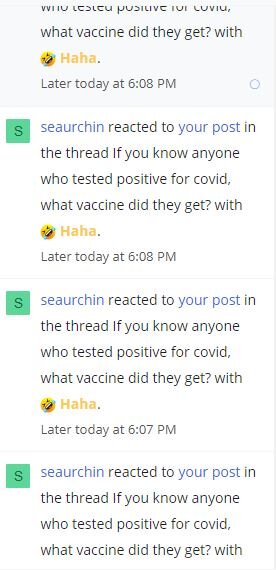- Joined
- May 15, 2014
- Messages
- 5,825
A family member that is double vaxxed and had symptoms tested negative multiple times and then his GF tested pozitive (LFT test). Obviously he had it.
Not saying everyone testing negative (with cold symptoms) has it, but I think it is possible.
I think those tests are less accurate and can give false negatives. My company requires PCR tests for anyone with symptoms. And the at home tests often depend on the test taker following directions. I hope you and your family are okay.









300x240.png)